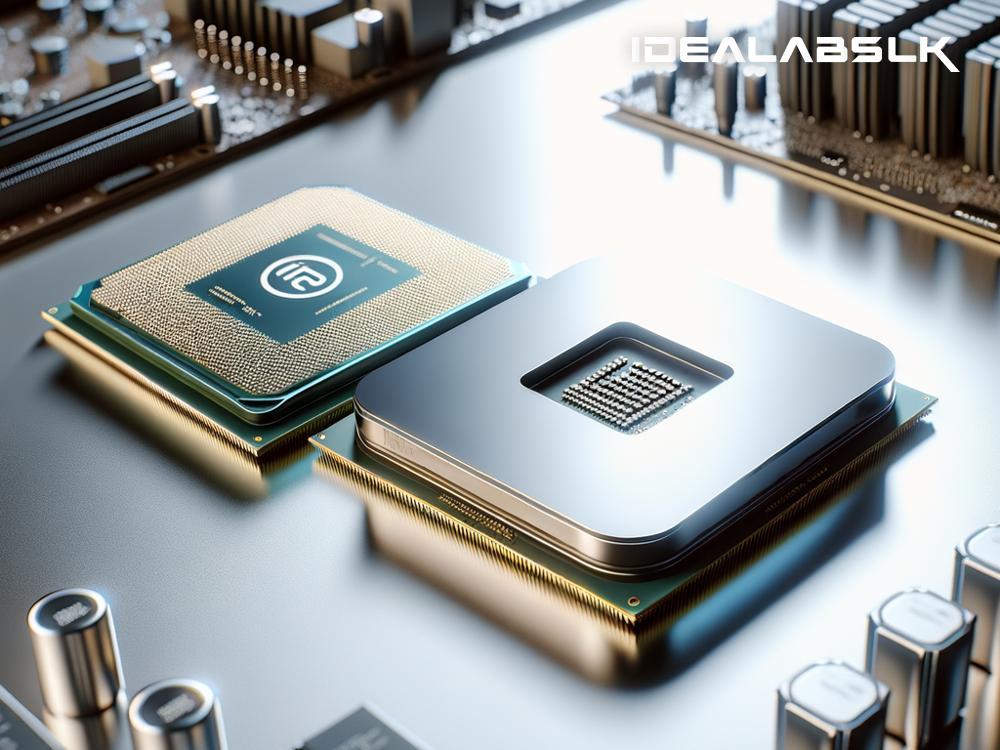AMD Ryzen 9 8900X vs. Intel Core i9-15900KF: A Battle of the Titans on Your Desktop
When it comes to building a powerful desktop for gaming, content creation, or intense multitasking, the heart of your machine – the CPU (Central Processing Unit) – plays a crucial role. In the world of high-end desktop CPUs, two names often come up as top contenders: AMD and Intel.
Today, let's dive into a comparison between two heavyweight CPUs from these tech giants – the AMD Ryzen 9 8900X and the Intel Core i9-15900KF. We'll keep things simple, focusing on what matters most to you without getting lost in overly technical jargon.
Understanding the Contenders
First off, let's briefly introduce our competitors.
AMD Ryzen 9 8900X - part of AMD's Ryzen 9 series, known for high performance and preferred by gamers and creatives alike. It's designed to handle multiple tasks efficiently, making it a good option for those who like to play demanding games while also streaming or running heavy software in the background.
Intel Core i9-15900KF - Intel’s answer to high demand for multitasking and high-end gaming. The "KF" at the end of its name indicates that it's unlocked for overclocking (for pushing its performance beyond the factory settings) and doesn't come with integrated graphics, meaning you'll need a separate GPU (Graphics Processing Unit) for anything display-related.
Performance
When it comes to pure performance, both the Ryzen 9 8900X and Core i9-15900KF are beasts, but they excel in slightly different areas:
-
Gaming: Both CPUs will offer an excellent gaming experience, but the i9-15900KF often has a slight edge in games that benefit from high single-core speeds, a traditional strength of Intel CPUs. However, the difference might not be noticeable unless you're pushing the highest frame rates on a high-refresh monitor.
-
Multitasking and Content Creation: Here’s where the Ryzen 9 8900X shines, thanks to its efficient handling of multiple tasks and core-heavy workloads like video editing or 3D rendering. This doesn't mean the i9-15900KF is a slouch; it's just that AMD's offering is especially tuned for these types of jobs.
Power Consumption and Heat
Power efficiency is another essential factor. Higher performance usually means higher power consumption, which in turn produces more heat. Both these CPUs can get thirsty for power, especially when pushed to their limits. However, AMD's Ryzen 9 8900X generally shows slightly better efficiency, translating to a bit less heat and potentially lower electricity bills over time.
Remember, managing that heat will require a good cooling solution, whether you choose AMD or Intel.
Price and Value
Pricing can fluctuate based on market demand, sales, and new product releases, but typically, AMD and Intel high-end CPUs are in the same ballpark. AMD often provides slightly better value, considering performance per dollar, especially if you value multi-core efficiency for tasks other than gaming.
However, Intel's Core i9-15900KF might justify its cost if maximum gaming performance is your sole objective, plus it offers overclocking potential for enthusiasts willing to tinker.
Future-Proofing
Buying a high-end CPU is also an investment in the future. While both AMD and Intel do their best to create upgrade paths for their platforms, socket changes and chipset compatibility can affect how long you can keep upgrading without replacing the motherboard. Historically, AMD has had a good track record with supporting older motherboards with new CPUs, but it's always wise to check the compatibility for future upgrades.
Conclusion
Choosing between the AMD Ryzen 9 8900X and Intel Core i9-15900KF boils down to what you value most: if you're into heavy multitasking or content creation alongside your gaming, AMD might be the way to go. On the other hand, if you're chasing the ultimate gaming performance and are keen on overclocking, Intel's offering is slightly better suited for your needs.
Remember, both CPUs will deliver fantastic performance, and your choice should also consider the ecosystem (AMD vs. Intel) you prefer, based on motherboard options, future upgradeability, and even brand loyalty if that's important to you. In the end, you'll be getting a top-tier CPU either way, capable of powering through today's most demanding tasks and games.

